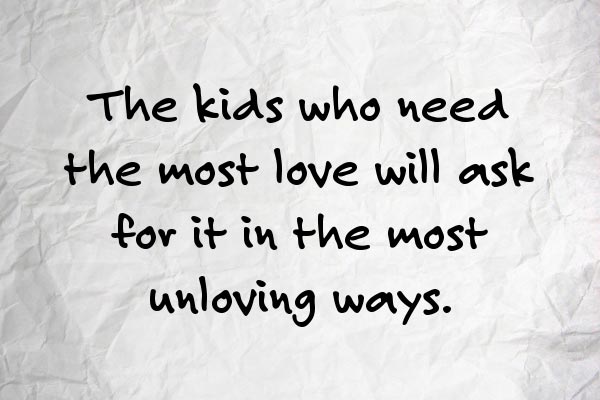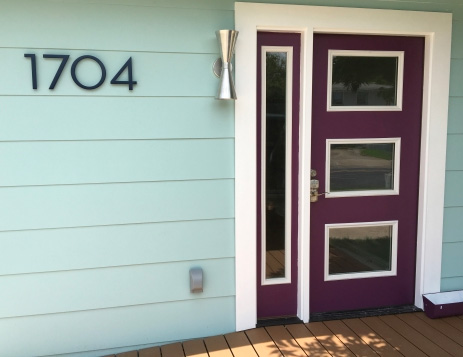
Children who are acting in unloving ways are likely to themselves be feeling unloved, unwanted, not valuable, incapable, powerless, or hurt. (*) The response those children need isn’t greater control, or bigger punishments, they need understanding, compassion, and support for their growth. LOVE.
How should a parent respond to these ‘unloving’ behaviors? That’s a more complicated topic than this blog post can tackle, but here’s a little basic information. A sustainable and effective response will include: staying calm and compassionate ourselves, not taking obnoxious (or even mean) behaviors personally, plenty of self-care for the parent/caregiver, working to understand the drivers of unwanted behaviors, identifying patterns and triggers, modifying the environment to prevent problem situations and support positive ones, and using circle-back conversations to provide information/support for learning, growing, and healing.
Can you spot the need for love in a child’s unloving behaviors today?
(*) And, it’s worth mentioning, physical states are deeply influential: hunger, thirst, tiredness, and overstimulation can all stimulate crummy behavior.
(**) I googled for the origin of this quote. I didn’t really find anything definitive, but one source said that it was the words of a teacher quoted by Russell Barkley (ADHD expert.) Anyway, kudos to that teacher, whomever they may be. :^)
post updated 5/2022








